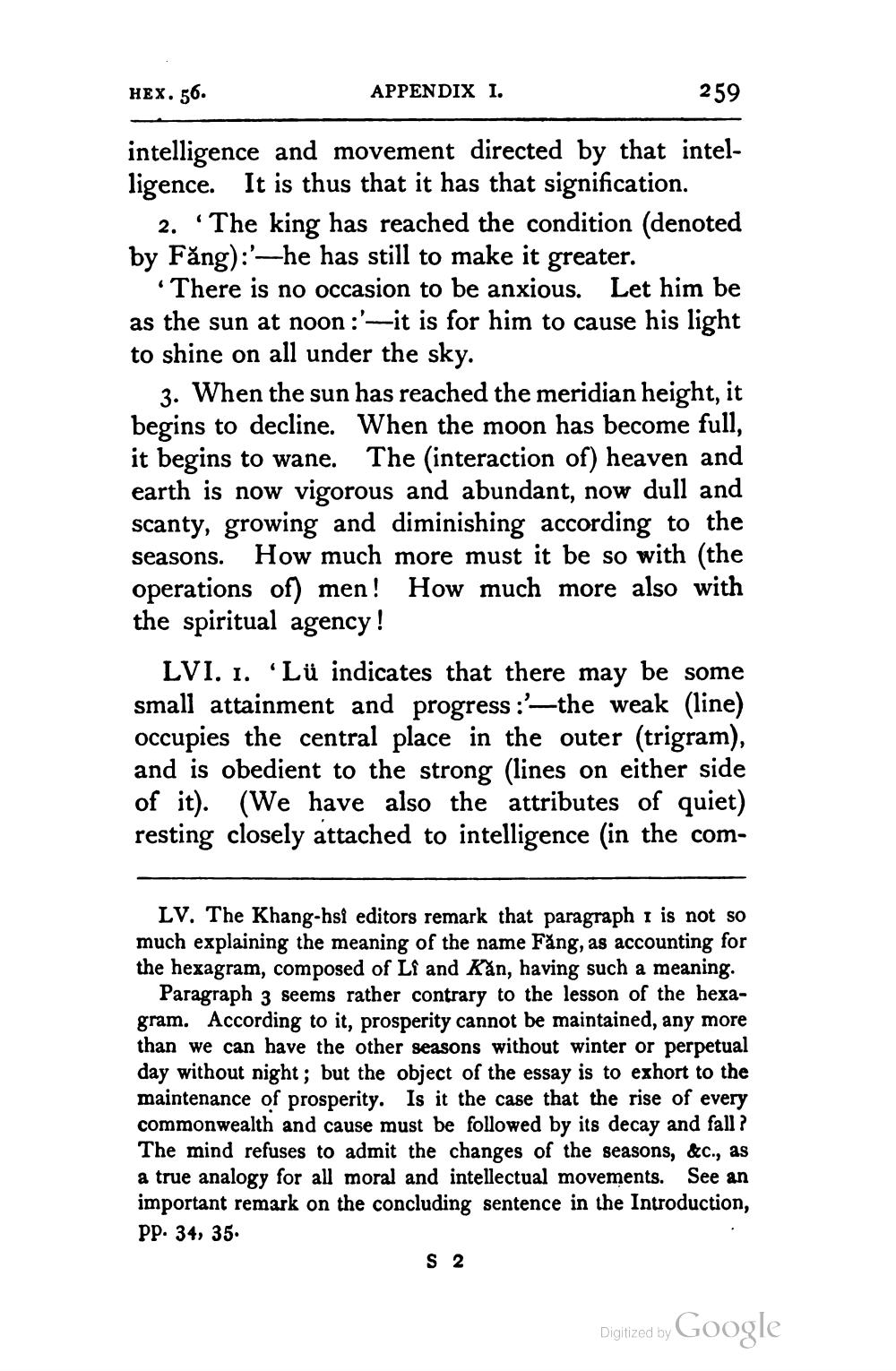________________
Hex. 56.
APPENDIX I.
259
intelligence and movement directed by that intelligence. It is thus that it has that signification.
2. “The king has reached the condition (denoted by Făng):'-he has still to make it greater.
*There is no occasion to be anxious. Let him be as the sun at noon :'-it is for him to cause his light to shine on all under the sky.
3. When the sun has reached the meridian height, it begins to decline. When the moon has become full, it begins to wane. The interaction of) heaven and earth is now vigorous and abundant, now dull and scanty, growing and diminishing according to the seasons. How much more must it be so with (the operations of) men! How much more also with the spiritual agency!
LVI. 1. 'Lü indicates that there may be some small attainment and progress :'—the weak (line) occupies the central place in the outer (trigram), and is obedient to the strong (lines on either side of it). (We have also the attributes of quiet) resting closely attached to intelligence in the com
LV. The Khang-hsi editors remark that paragraph 1 is not so much explaining the meaning of the name Făng, as accounting for the hexagram, composed of Li and Kån, having such a meaning.
Paragraph 3 seems rather contrary to the lesson of the hexagram. According to it, prosperity cannot be maintained, any more than we can have the other seasons without winter or perpetual day without night; but the object of the essay is to exhort to the maintenance of prosperity. Is it the case that the rise of every commonwealth and cause must be followed by its decay and fall? The mind refuses to admit the changes of the seasons, &c., as a true analogy for all moral and intellectual movements. See an important remark on the concluding sentence in the Introduction, pp. 34, 35.
S 2
Digitized by Google




